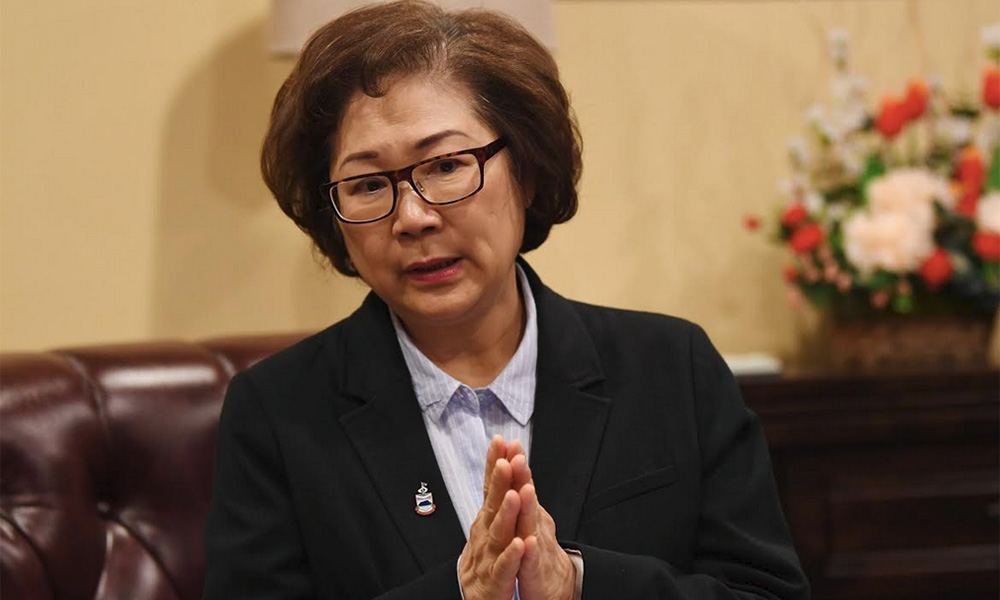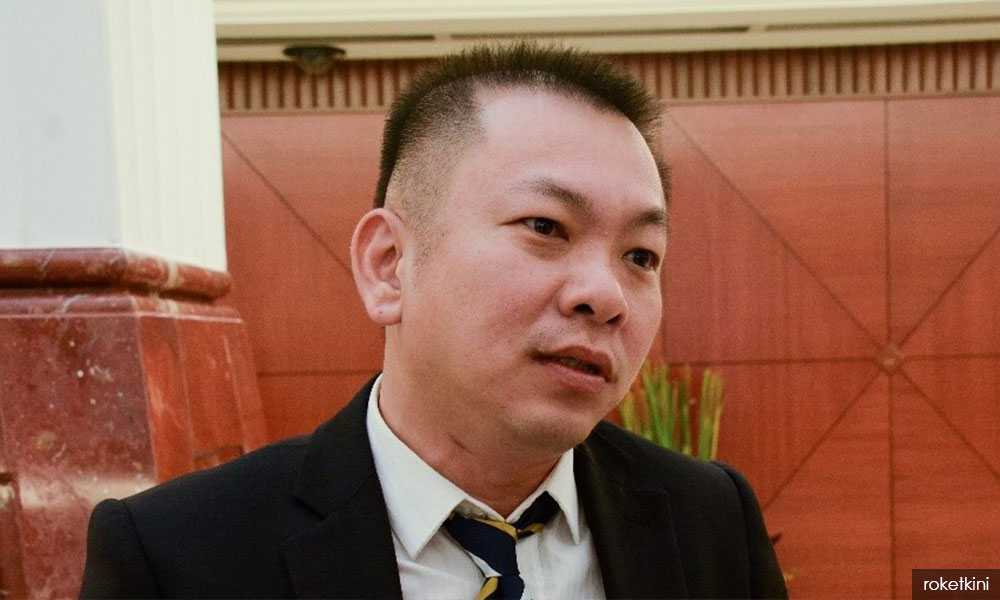A tunnel hallway at the Queen Elizabeth Hospital in Kota Kinabalu, Sabah, has been fitted with numerous beds and medical equipment to convert the space into a Covid-19 ward in the latest stopgap measure of the authorities to combat the rising number of cases.
A video circulating on WhatsApp depicts the hallway, which connects the hospital’s Emergency Department to its specialist clinics, lined with oxygen tanks and beds occupied by patients.
Malaysiakini understands that the hospital had started referring non-Covid-19 patients to other hospitals and that its specialist clinics were also being used to treat Covid-19 patients.
This effectively means the Queen Elizabeth Hospital has been reverted to a full-Covid-19 facility, the role it had played during the height of the Covid-19 crisis in Sabah after the state election last year.
In a July 26 circular sighted by Malaysiakini, Queen Elizabeth Hospital director Dr William Gotulis announced the temporary closure of all its specialist clinics to prevent the further spread of the virus.
“As we know, due to the increasing number of Covid-19 cases, the hospital management has taken the approach to temporarily suspend specialist clinic services in order to curb the Covid-19 outbreak among health workers and visitors to Queen Elizabeth Hospital,” Gotulis said.
A Health Ministry source also said general operations theatres were being converted into Intensive Care Units (ICUs), raising the number of beds from 14 to 50.
MPs call for answers
Tawau MP Christina Liew said the situation saddened her as it has been seven months since the declaration of an emergency that aimed to curb the spread of Covid-19, yet this was the result.

Citing concerns about the well-being of medical frontliners, she urged the Sabah Health Department to address the situation at Queen Elizabeth Hospital.
“I call on the state Health Department to immediately address the issue at Queen Elizabeth Hospital as it may jeopardise the physical and mental well-being of medical frontliners there,” she said.
When contacted, Sabah Covid-19 spokesperson Masidi Manjun said that questions regarding the situation at the hospital would be better directed to Sabah Health director Dr Rose Mudin.
However, Malaysiakini's attempts to contact Rose were unsuccessful and her aide said that no statement would be issued on the matter.
Surge in cases
On July 28, Sabah reported 913 Covid-19 cases, its highest number of daily cases in the last eight months when infections spiked during the state election in September.
Liew said the latest surge in cases in Kota Kinabalu was due in part to the non-compliance of standard operating procedures (SOPs) by members of the public.
Despite being in Phase 2 of lockdown, Sabah maintained that it would allow dine-ins at restaurants, which defies the SOPs outlined by the National Security Council.
Meanwhile, Kota Kinabalu MP Chan Foong Hin provided an interesting take on the surge of cases in Sabah, alleging that Covid-19 cases were due to the 69 residents who fled from Pulau Gaya to escape an enhanced movement control order (MCO) imposed earlier this month.
“From my own analysis, the surge in cases started with the Pulau Gaya (incident), where 69 people ran away when the government wanted to do mass screening due to the enhanced MCO. Only 10 were found.
“I suspect they ran away from the enhanced MCO area because they were migrants without proper documentation. Pulau Gaya is a hotspot for undocumented migrants,” Chan said.

He added that a lot of the recent enhanced MCO areas were shophouses in the Kota Kinabalu town centre, where migrants usually resided.
Chan said it was likely that the 69 people who fled Pulau Gaya sought refuge at friends' places in these shophouses, thereby resulting in these clusters.
“They would stay at their friends' or relatives' houses and the living situation would be quite crowded,” the DAP lawmaker said.
He said that the unfair distribution and late delivery of vaccines contributed to this issue, adding that he was told some of the patients admitted into Queen Elizabeth Hospital only had one dose of the Covid-19 vaccine.
“We missed the 'golden time' to speed up the vaccination process.
“Some vaccination centres (PPVs) such as Universiti Malaysia Sabah (UMS) have the capacity to vaccinate 3,000 people per day. But in its first week of operations, it was about 200 to 400 people per day.
"Even though they have the capacity, the vaccines are not there,” Chan added.
He claimed that only about 100 people were now getting vaccinated at UMS per day.
It was reported in June that four PPVs in Sabah had stopped inoculation due to a shortage of vaccines. However, Masidi, who is also the Sabah local government and housing minister, had said that Sabah was scheduled to receive more than one million doses of the Covid-19 vaccine in July.
As of July 28, Sabah's vaccination rate is the lowest among all states, with only 18.8 percent of its population receiving their first dose and 9.9 percent receiving their second.
This is in stark contrast with its neighbour Sarawak, where 59.9 percent of the population has received the first dose and 43.6 percent are fully vaccinated. - Mkini




No comments:
Post a Comment
Note: Only a member of this blog may post a comment.